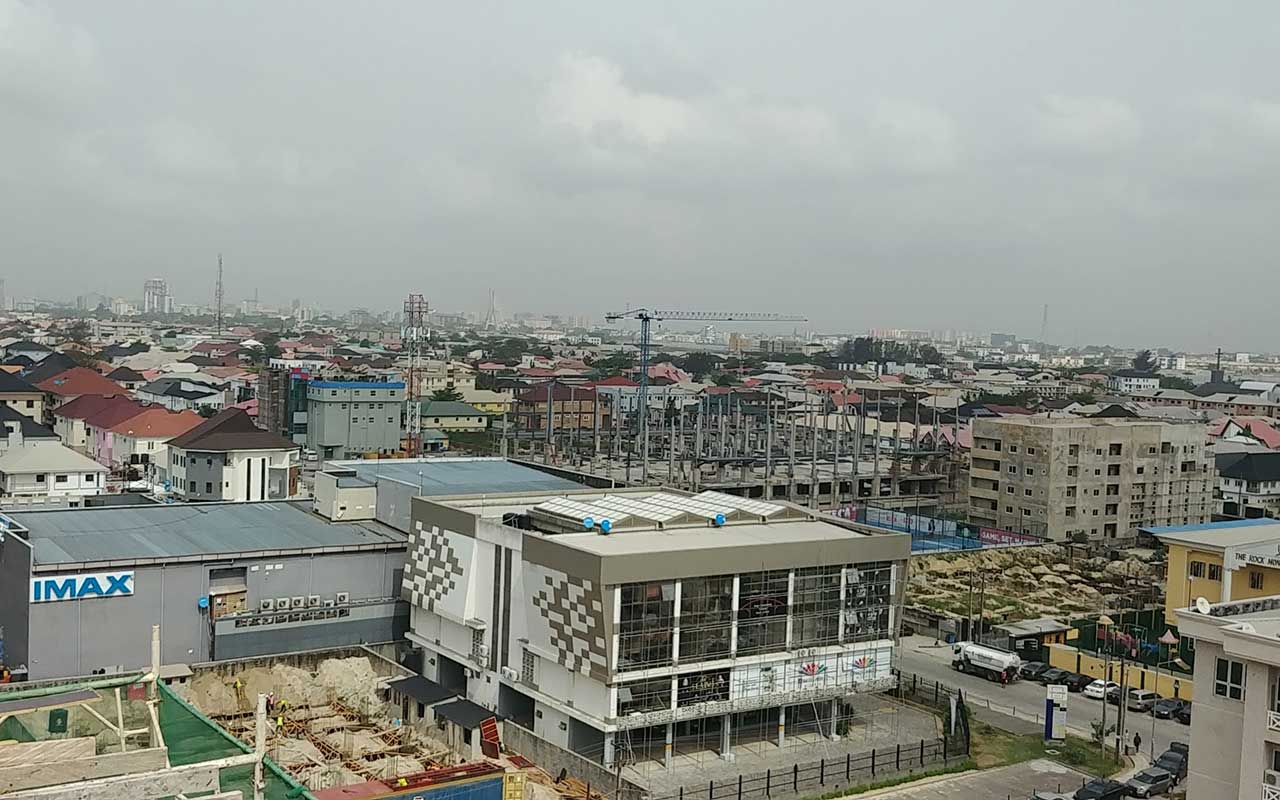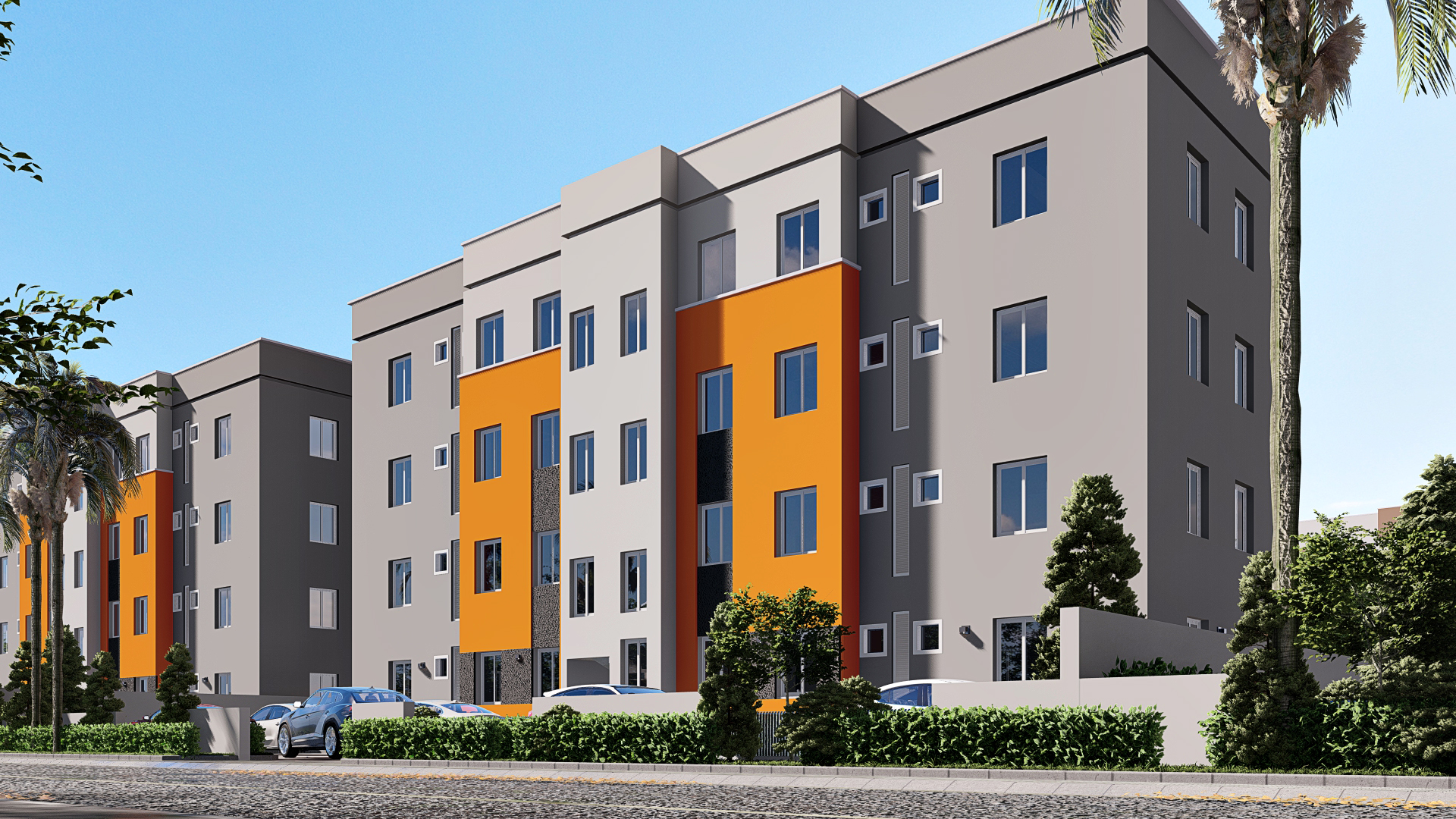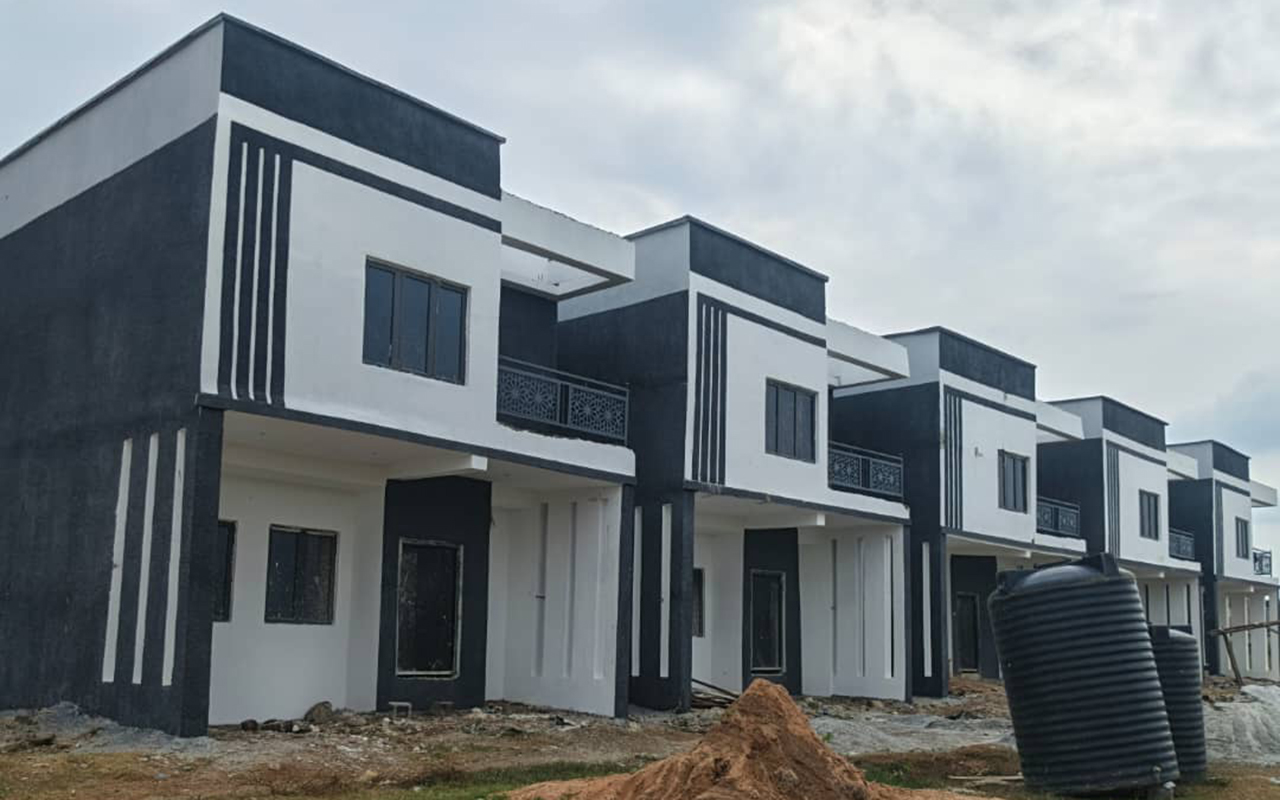
Nigeria’s real estate sector, weighed down by economic fluctuation or market dynamics, is currently experiencing a dramatic transformation fueled by the emergence of Generation Z as a formidable force in the housing market.
These young adults entering the workforce with fresh perspectives and priorities are now actively seeking to rent or purchase homes, challenging traditional home ownership norms. Developers, agents, and sellers keen on remaining relevant in the market adopt these characteristics and values that shape their housing choices.
According to the World Bank, the population of young people aged 15-24 in Africa is projected to reach 500 million in 2080. The working age population of 25-64 will only peak after 2100 at about 1.5 billion people. If the people are healthy, educated, and skilled, this projected working-age population can be the long-awaited big push to accelerate the region’s economic growth.
Nigeria, with the highest population in Africa, is expected to have a median age that will reach 18.3 years, meaning that about half of the population will be under 18.5 years.
In global markets, studies show that Gen Zs begin to buy their first homes at around 24-25 years old. In Nigeria, the trend may vary slightly due to economic constraints, but many Gen Z adults are starting to invest in smaller properties, instalment land holdings and cooperative housing schemes.
Comparatively, this generation is in a hurry to arrive early on the homeownership market. While some may not be scratching the surface yet given the financial constraints, others are moving digital cash in ways innovatively. With new mortgage solutions targeting young professionals, it is expected that their home ownership is expected to grow over time.
Essentially, Generation Zs are tech-savvy, socially conscious, and individualistic, while their approach to homeownership is their emphasis on sustainability and environmental consciousness, as climate change awareness and eco-friendly practices are integral to their decision-making process.
Experts disclose that developers are already integrating sustainable features into their designs, such as energy-efficient appliances, solar panels, and green spaces. Generation Zs are also embracing smart home technology due to the convenience and efficiency associated with the environment.
Besides, home design preferences are heavily influenced by their desire for flexible and multi-functional spaces that cater to their flexible lifestyles. They also prefer urban locations with vibrant communities and easy access to amenities.
The experts noted that many Gen Z adults may not have the same purchasing power as older generations; they are leveraging modern financing tools such as crowdfunding, rent-to-own schemes, and digital savings fintech platforms to enter the property market.
A fellow of the Nigerian Institution of Estate Surveyors and Valuers (NIESV), Mr Sola Enitan, who confirmed the development, said Generation Zs are beginning to shape the commercial real estate market in Nigeria. He stressed that the real estate sector has embraced digital transformation due to the demands of Gen Z, as online property portals, mobile apps, and digital payment platforms have made the property transaction process faster and more transparent.
“This has revolutionised the property search and purchase process in both residential and commercial real estate. The market is now more online than field pacing. They’d rather decide online first before engaging in physical travel to inspect homes.”
According to him, Gen Z’s demand for faster and more efficient service has pushed real estate developers and agencies to online and mobile media, the adoption of more digital solutions, such as online property listings, virtual property tours, and automated contract signing processes. Gen Zs just don’t have time to do field chasing of real estate products, quite unlike their parents.
“Their demand for flexible, tech-savvy work environments or even offsite office spaces has led to a surge in co-working spaces and remote-friendly commercial properties. Their preference for tech hubs and cyber-sourcing is changing how office spaces are structured, with property developers focusing more on technology integration and sustainability,” he said.
Enitan, who is the Principal Partner, Sola Enitan and Company, said the generation has redefined affordable housing to include not just low prices but also flexibility in terms of ownership. He revealed that Gen Zs are increasingly taking advantage of rent-to-own models, micro-mortgages, and co-living spaces, which are changing how the market defines affordability. “This shift is transformative in the sense that it could reshape traditional homeownership models in Nigeria as they gain more financial stability and purchasing power,” he said.
For him, this generation is less focused on large, extravagant homes and more interested in small affordable, functional, and minimalist living spaces. Enitan said: “This trend influences developers to focus on optimising smaller homes and apartments, with energy-saving features and smart home technology. Lekki Peninsula is more of an apartment and studio enclave now more than ever with most of the old residential villas being converted into small utilitarian apartments housing an increasing density of home occupiers and renters.
“There is an increasing growth in smaller apartments consisting of studio, one and two-bedroom apartments, an obvious indication that Nigeria’s Gen Z would be late on the marriage scene and equally minimalist in family raising, unlike their parents.”
They have significantly pushed the real estate sector towards green and sustainable building practices. “Their preferences are accelerating the adoption of energy-efficient designs and renewable energy sources such as solar, even in areas where these practices were not previously common. The focus on sustainability is expected to become the norm in urban areas, driven by this generation’s demand for environmentally friendly housing.
“Whilst we cannot say that they have arrived in terms of capital adequacy, Gen Z is digital natives and tends to rely on digital platforms for home searches, negotiations, and even financing options. Gen Z may well be the richer generation given the astutely deft way in which they’re able to squeeze money out of the digital and cyberworld and their love for smart living. In Nigeria, where mobile technology is widespread, real estate companies have increasingly developed apps and online platforms to cater to this demographic.”
Past Chairman, NIESV, Lagos branch, Dotun Bamigbola, stated that their level of education and exposure has made them focus on quality and standard commercial real estate. “They have also taken more interest in co-working space offices, commercial retail and short-let apartments because a lot of them have access to the liquidity that can afford these services and furnished facilities.”
He said they are formidable and their rates of purchase are increasing. “However, the rates of sales by this group of homeowners see housing as an investment, so they can fling the house in the market for alternative investment,” he added.
Bamigbola said the economy has pushed GenZs to the attitude of moving at their usual fast paces. They have that attitude, which is needed to stay afloat in an unstable and fast-changing economy like in Nigeria, adding that the introduction of digital platforms and tools increased the involvement of the younger generation in real estate investment.
President, International Real Estate Federation (FIABCI)-Nigeria chapter Young Member Council, Kenny Nwankwo, said: “We’re seeing more interest in co-working spaces, flexible leases, and locations that accommodate a mix of professional and personal needs. Their preferences, however, are largely pragmatic – affordable, accessible, and flexible spaces that align with their evolving work patterns, especially in major urban centres.
“With millions of young Nigerians entering adulthood, their collective impact on the housing market is undeniable. While many are not yet buying homes in large numbers—largely due to economic constraints – they are influencing the rental market, especially in cities. Affordable housing, either for renting or purchasing, is going to be crucial as more of them start seeking independent living spaces.
“When it comes to first-time home purchases, the trend is for this to happen later than previous generations due to financial limitations, but it’s only a matter of time before their numbers drive significant demand in the market.”
Nwankwo called for policies that address both their economic realities and long-term needs, such as expanding affordable housing projects, especially in urban areas where many young Nigerians want to live and work, adding that mortgage reforms are crucial – lower interest rates and more flexible terms would make homeownership a realistic goal for this group.
He also wants the government to also introduce incentives for first-time buyers, such as reducing the financial barriers around down payments and a digital overhaul of property transactions – making them easier and more transparent online – which would cater to Gen Z’s tech-savvy nature and make the process less cumbersome.






